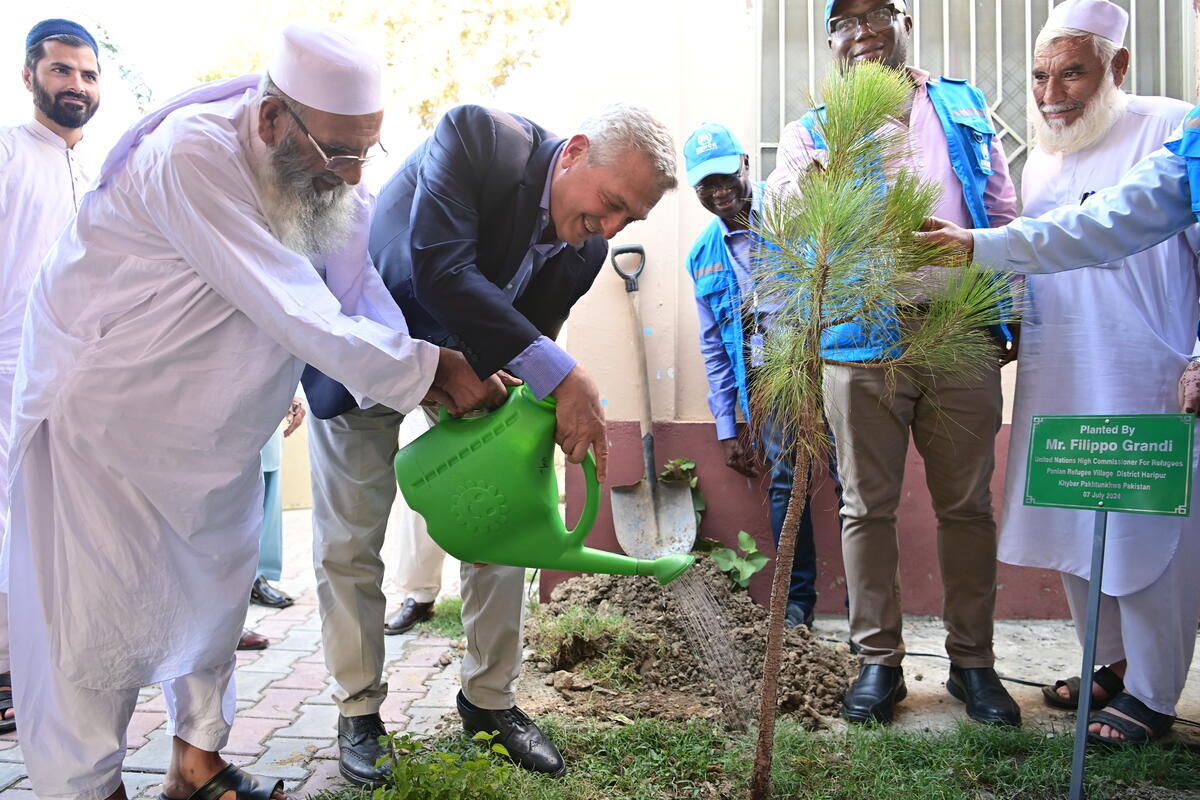Three face justice in Athens for attacks on foreigners
Three face justice in Athens for attacks on foreigners

ATHENS, Greece, Sept. 27 (UNHCR) - Three people went on trial in Athens Tuesday in a rare criminal case against xenophobic violence and the first charges related to a series of vicious attacks on Asian and African migrants in the Greek capital.
The trial of a 44-year-old woman and two men aged 31 and 47 was adjourned to 12 December. They are charged with group assault and causing serious injury in connection with the Sept. 16 stabbing of a 24-year-old Afghan asylum-seeker. Each charge carries a possible prison term of three months to five years on conviction. This is the first trial of this nature since 1999 when a Greek man was given two life sentences for shooting nine migrants.
"The fact that these people have been brought to trial is positive," said Giorgos Tsarbopoulos, head of UNHCR's office in Greece. "It takes courage for foreign victims to go to the police since many feel they will be attacked again."
Attacks on immigrants, refugees and asylum-seekers have become an almost daily occurrence throughout August and September in the Agios Panteleimonas and Plateia Attikis neighborhoods of Athens where many foreigners live.
"The attacks become more serious day by day and increase dramatically," Yonous Muhammadi, president of the Afghan community in Greece, wrote recently in a letter to Prime Minister George Papandreou. Muhammadi stressed, however, he did not believe the attacks to be typical of "Greek democracy and hospitality."
Earlier this month, as Greek Minister of Citizen Protection Christos Papoutsis was receiving Afghanistan's Minister for Refugees and Repatriation, Jamaher Anwary, three Afghan asylum-seekers were attacked in front of their apartment building. One of them, Aziz*, was stabbed in the chest.
Aziz says he was approached by about 15 men and one woman, who shouted: "Where are you from? Go back to your country immediately! Leave! Out of here! Go to hell! You are not wanted." He spoke from his hospital bed last week as he lay recovering from his wounds.
"They barely missed his heart," says his Afghan friend Ahat, keeping watch by his bedside along with Greek co-workers from the company where Aziz has worked for the last six years.
Some say Greece's economic woes have fueled racist attacks against foreigners. "It is a huge challenge to tackle racist violence in conditions of social and economic crisis," Kostis Papaioannou, president of the National Committee for Human Rights, told UNHCR. He added that most racially motivated crimes are not even investigated or recorded as such.
"In times of social and economic instability it is easy to look for scapegoats," said UNHCR's Tsarbopoulos. "The state and the Greek society should show zero tolerance towards racist violence."
By Ketty Kehayioylou in Athens
*Name changed for protection reasons









